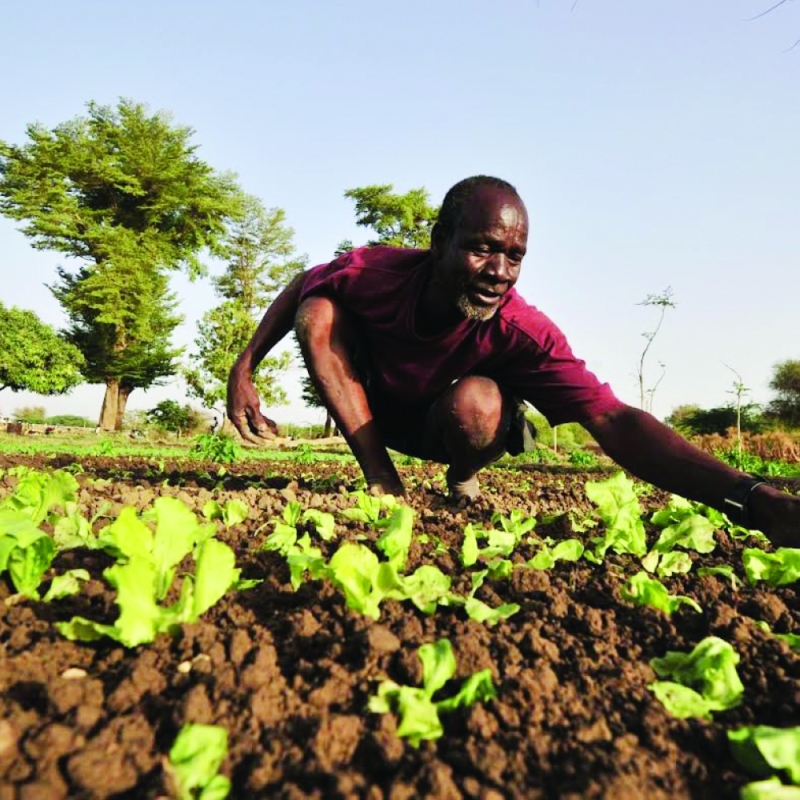Norway, AU-NEPAD to pump P41m into Africa’s agriculture
Keletso Thobega | Monday May 27, 2024 06:00


The funding is for a soil health programme that will be rolled out across Africa over the next three years.
The programme is expected to benefit all AU member states in the backdrop of growing food insecurity in the region and declining agriculture quality on account of poor accessibility, the high cost of fertilisers and the state of the continent’s soil health.
Norway Minister of International Development, Anne Breathe Tvinnereim, said the partnership is critical for achieving a meaningful impact on the growth of the agriculture sector in Africa. The partnership aims to optimise data and information for active monitoring and evaluation of policies and farming practices' impact on soil health.
The war in Russia and Ukraine has contributed significantly to higher costs of fertilisers and poor accessibility.
The time is now for African states to develop mechanisms to create their own sustainable fertiliser supply chains and make greater investments in soil health for optimum agricultural produce, said Director of Agriculture, Food Security and Environmental Sustainability at AU-NEPAD, Estherine Lisinge-Fatabong.
She was speaking during a press conference on the sidelines of the Fertiliser and Soil Health Summit held in Nairobi, Kenya recently. Lisinge-Fatabong further noted that food insecurity is an urgent concern in sub-Saharan Africa and climate change threats have worsened the challenges besieging the agriculture sector.
“It’s not just feeding people that is of paramount importance but feeding them food that is nutritious, filling, and organic. “Food that gives them the essential minerals and nutrients for optimal functionality,” she noted.
As sustainability and the Green Revolution take centre stage on the world development platform, it is becoming evident that it is critical to invest in a healthy planet. This will require healthy people who in turn need healthy diets and they can get that from agricultural produce from healthy soils.
This resonates with the tagline of this year’s Fertiliser and Soil Health Summit, 'Listen to the Land'. Soil health has been taken for granted for a long time but after facing challenges in meeting agriculture produce targets and poor farming scalability and output, it is becoming clearer that monitoring of soil health is a key aspect of meeting food demand needs.
It is important to finance projects aimed at soil health and also empower small-holder farmers who feed their communities. Focus must also be placed on national and regional farming projects that ensure that people have sufficient produce to consume to keep them alive, functional and healthy.
Lisinge-Fatabong said that the partnership would facilitate the summit resolutions and commitments by AU member states. Some of the resolutions include tripling domestic production and distribution of certified quality organic and inorganic fertilisers by 2034 to improve access and affordability for smallholder farmers. This will be achieved by prioritising local production and blending of mineral fertilisers using locally available raw materials, strengthening research and development on the utilisation of organic and inorganic fertilisers and providing incentives for local production, utilisation and ready use of organic resources.
After deliberations with all AU member states, the Fertiliser and Soil Health Summit made commitments concerning soil health and the development of fertiliser supply chains. In terms of financing, the plan is to use the African Fertiliser Financing Mechanism (AFFM) to improve production, procurement and distribution of organic and inorganic fertilisers. The summit also committed to improving soil health interventions by creating multi-source soil health funds.
In terms of soil health, the commitments include making efforts to reverse land degradation, promoting integrated soil and water conservation programmes, promoting investment in irrigation and strengthening national, regional, and international collaborative research on soil health. Summit participants also pledged to leverage opportunities offered by decentralised low-carbon and circular fertiliser production and establish SME ventures, especially those run by youth and women, orientated to the production and distribution of organic and inorganic fertilisers.
Norad has supported the African region for over 60 years in terms of agriculture and has done so through programmes such as the AFFM, Food and Agriculture Organisation, and research institutions that have developed digital tools for data sharing on soil health.
*Keletso Thobega is a freelance development journalist and 2024 Fellow of the African Union (AU) Media Fellowship and United Nations (UN) Foundation Health Reporting Fellowship.
